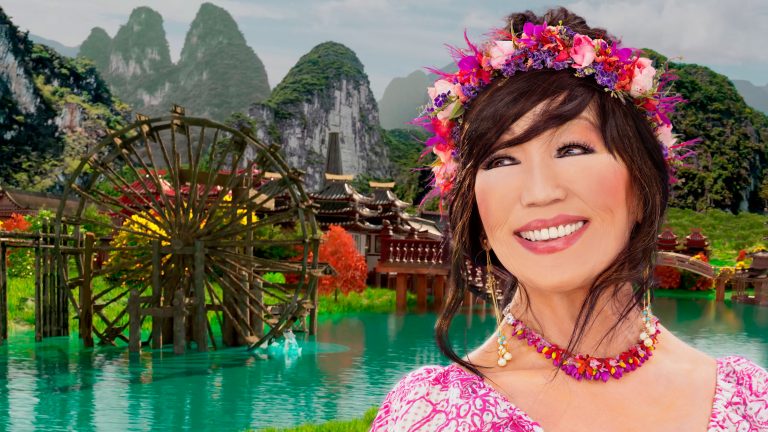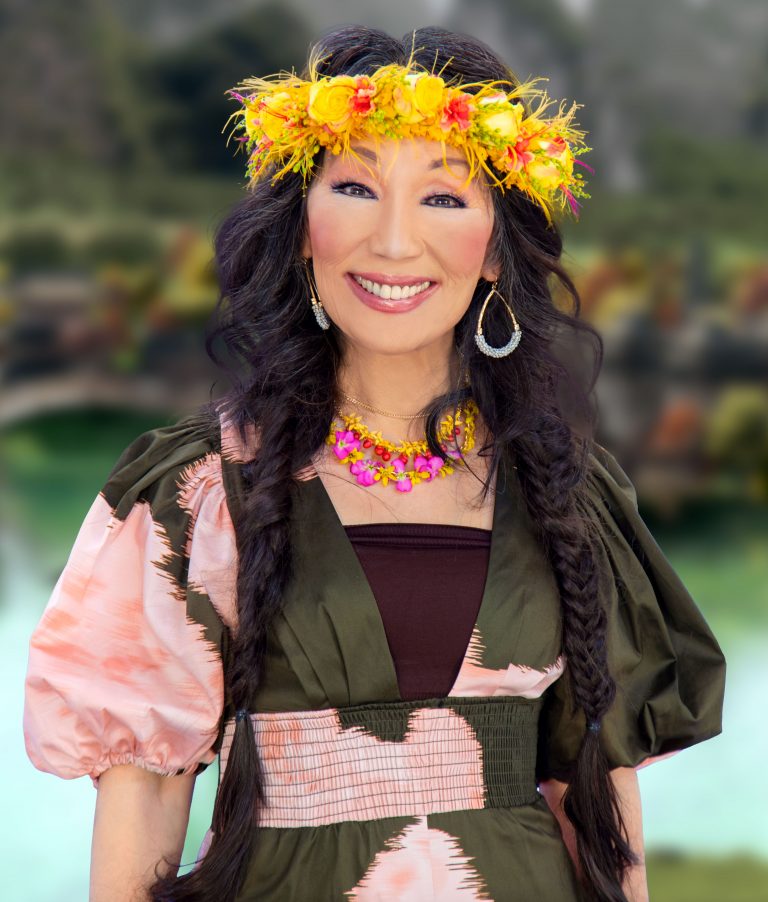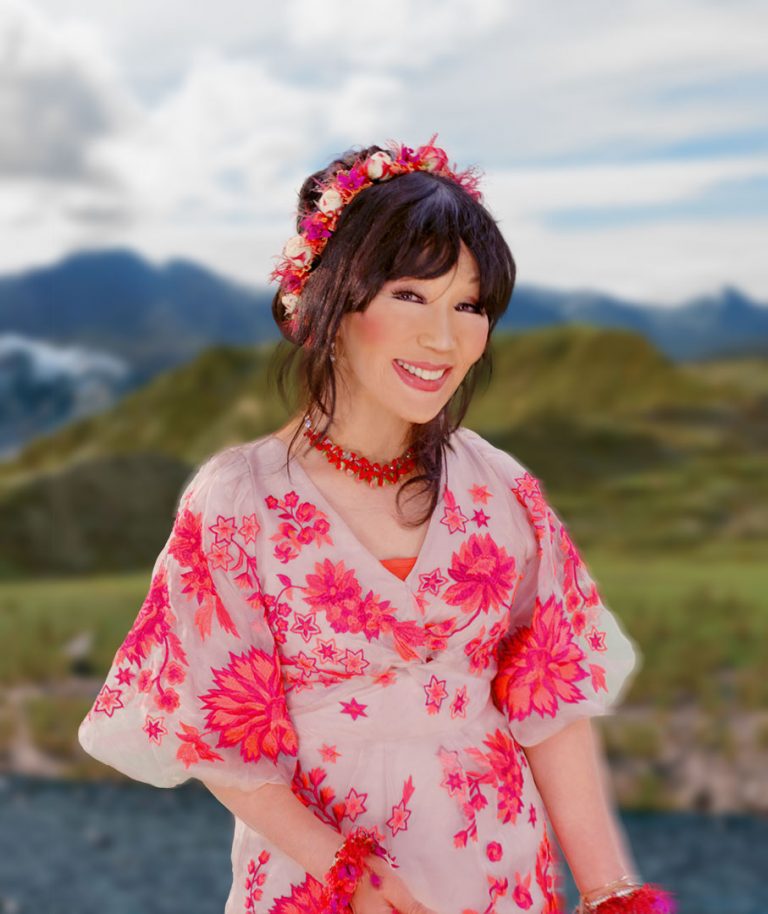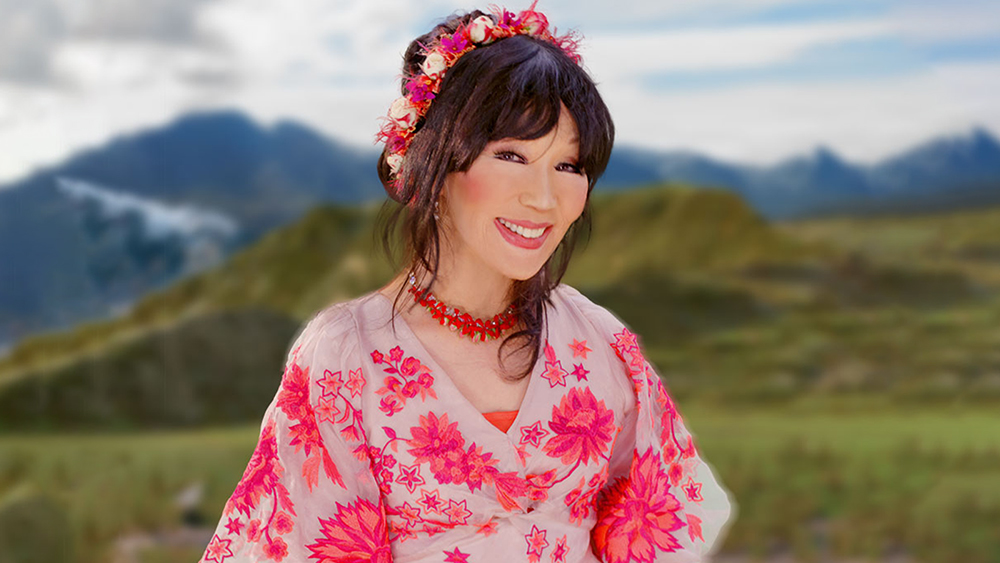Wai Lana “River of Forgiveness” (singer-songwriter)
Press Release:
Devoting your life to yoga and its spiritual wisdom can profoundly impact how you live. For highly-acclaimed yoga instructor and singer-songwriter Wai Lana, spreading this powerful and influential practice has become her ultimate mission. No stranger to being in the public eye, she has already blown up television and the internet with her TV series Wai Lana Yoga and other training videos. Ever since 2015, when International Yoga Day became a recognized holiday across the globe, Wai Lana has released a new celebratory music video with themes of peace, happiness, hope, respect, and more. This year, she aligned the release of “River of Forgiveness” with International Day of Friendship and, of course, Global Forgiveness Day.
The lyrics for the first half of “River of Forgiveness” carry great weight, as can any grudge held in anger or condemnation. Extremely open and expressive about how people can be mad at their dad, mom, ex-lover, kids, neighbors, and boss, Wai Lana crafts every word with the intent to show how our relationships are tested when any form of confrontation occurs. Following the lengthy list of people who can do us wrong, she meditates and reflects on how the negative feelings and energy overtake us, and what we can do to improve our state of wellness. The remainder of the song involves how to let go of these emotional grievances, welcoming the “River of Forgiveness” to wash over us and cleanse our body and soul. The significance and relatability of this song make it extremely accommodating for new and returning Wai Lana fans, reminding us that relief is attainable if you just give it a chance to find you.
She forms a snowball while explaining her frustration to smash it apart. She stomps forcefully on iced-over water, breaking it as did her heart. Gazing at the subjects in a framed photo, she throws it to the prison floor and shatters the keepsake to pieces. Out of character for Wai Lana, her cooped-up rage is evident, but once she reconciles, everything turns bright and joyful as it should be. Further pushing the widely understood theme and essence of “River of Forgiveness,” the clips feature settings uniting everyone who this music video reaches.

Can you talk about where you were coming from when formulating the concept and lyrics for “River of Forgiveness”? Was there a specific moment that sparked the idea for the song’s meaning?
You don’t have to look very far to see someone struggling with anger or resentment towards others. So many people I know have struggled with the burden of anger, but I’ve also seen peoples’ lives transformed by being able to forgive others and let go of anger. Once we become aware of the damage anger can cause in our own life and in the lives of others, the importance of forgiveness become very clear. It’s such an important subject, so I wanted to produce a song about it.
I’m always looking for ways to encourage people so it can have a positive impact on their lives. Music is truly a Godsend as a powerful medium for sharing practical wisdom in a way that can have a wonderful effect on peoples’ hearts and minds.
Even though I feel quite inadequate, I’m always thinking of ways to be of service to others. Producing music videos like River of Forgiveness is one thing I can contribute that hopefully will benefit people in their lives.

Can you walk us through how you created the visual concepts for “River of Forgiveness”? There are a variety of unique scenes displayed throughout the video. How does each scene showcase the messages behind the song?
Yes certainly. It was such a pleasure working on the visuals. I like being creative and there was so much opportunity for creativity in this part of the work.
There is a part of the song where I sing, “And I blame him for my private hell / my heart locked up in a prison cell.” Part of me thought these lyrics might be too heavy, but I was already envisioning how powerful the scene in the prison cell would be to convey this message, so I kept those lyrics.
Holding on to anger, whether we show it or hold it within ourselves, is like being locked up in a prison cell, especially if we mistakenly believe that the way to pay someone back for wronging us is to be mad at them. Actually, the person who is mad is the one who is suffering.
The ice lake is a beautiful location that is symbolic of how our hearts can become hard and cold like ice when we hold onto anger. Similarly, the scene in the snow has some meaningful contrasts. On one hand, the snow is pure and white, but on the other hand making a snowball to throw at someone is an expression of anger. Deep inside, we really want to be able to love and show affection to others, but our anger interferes with this, even if to a small degree. The only way to remove this anger is through forgiveness.
Then the rivers at the end also showcase the message of the song. The darker river maintains a sober meditative mood, even though the song has become lighter by that point. So there is a nice contrast there. The flowing, jade-like water also represents beauty and forgiveness. The rivers are also symbolic of the peaceful mind and heart we can have if we give up anger towards others.
“Why can’t you love me for me? The way I dress, the way I talk,” is a sentiment that many people can relate to. Why was it important to create a song expressing such vulnerable topics?
Yes, like you said, it’s a sentiment people can relate to. So, I felt it was it was important to try to help people through this. And I’ve found that it’s much easier to help people when you empathize with where they’re coming from and what they’re struggling with. You can’t really help someone who doesn’t want your help. And a person generally won’t want your help unless they know you truly care about them.
With so much anger in the world, it’s easy to become very unhappy. River of Forgiveness points out the problem with this, but also offers a solution and a way out. Anger is such a burden on us. When we have the strength and knowledge to forgive others, we are alleviated from this burden. My hope is that my new song will help people overcome this very common problem.
“River of Forgiveness” has contrasting elements. The lyrics at the start of the song don’t represent forgiving, and are rather dark, yet the song’s sound is lighthearted and upbeat. Can you explain why you decided to have these contrasting qualities?
We tried to make the melody focus on the tongue-and-cheek aspect of the lyrics and then we maintained that throughout the darker parts of the song. So, the melody was bright and uplifting in contrast with a fairly heavy subject matter. In this case, these two opposites worked well to complement each other.
I knew that if I followed the tone of the lyrics too closely, the song could have come out with a depressing feel to it. I wanted to avoid that and instill a sense of hope and optimism. It was challenging to achieve this balance and it’s been very nice to hear peoples’ feedback that the song has helped them.

Why is it important to include a meditative quality in your creations? How has your relationship with yoga impacted your career in music?
The meditative qualities offer relief from and a solution to the problem of anger. It has the immediate effect or relaxing the body and mind, and a long-term, deeper effect of understanding who we are and what our relationship with others is.
When we start to question “Why has life become so bitter? What is life really about?” and so on, this is where real meditation and contemplation begins.
River of Forgiveness starts out more serious and sober pointing out the bummers of life. Then it transitions to a more meditative mood of self-questioning, “Is this all life is about, being petty and holding on to anger towards others?”, and then it ends with a very uplifting feel. Getting the flow just right was very challenging, but after much experimentation I’m extremely happy how it came together.
And to answer the second part of your question, yoga has had a direct influence on my music. It is all very much connected.
What does the future look like for Wai Lana? Do you have any hopes or plans for the future that you would like to share with your audience?
It’s hard to say what the future will bring, and it’s not something I worry about. I hope to be able to continue to use whatever musical capabilities I have to help people. Ultimately, it would give me great happiness if I were able to help people find relief from their burdens and concerns and bring hope into their lives in whatever way I can.
Follow Wai Lana:
www.wailana.com
https://www.facebook.com/wailana
http://twitter.com/wailanayoga
https://www.instagram.com/wai_lana/?hl=en
https://www.tiktok.com/discover/Wai-Lana-Yoga?lang=en



